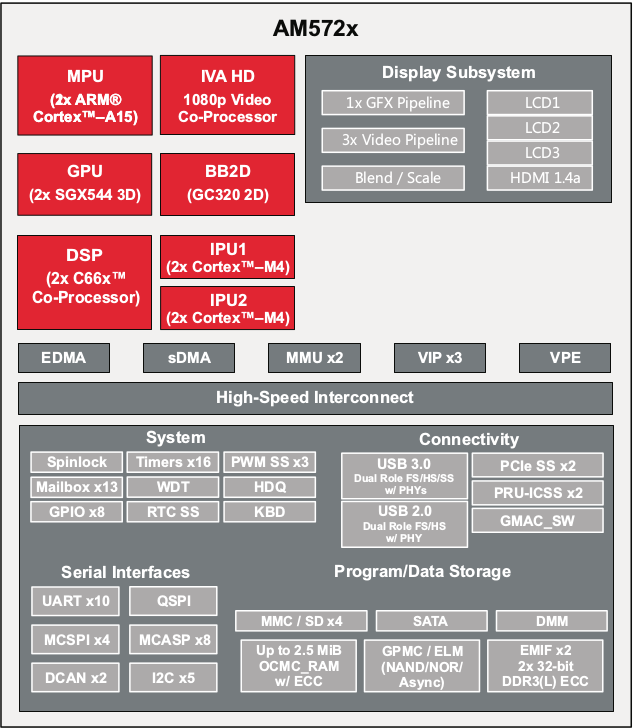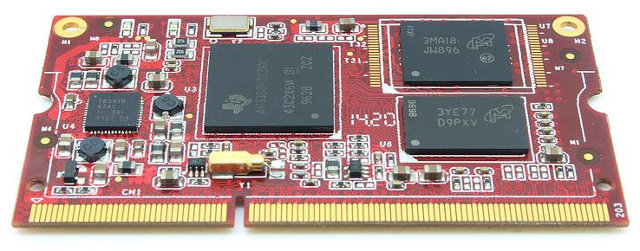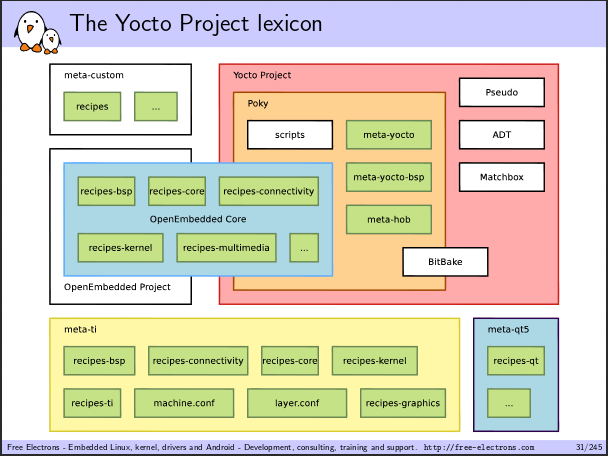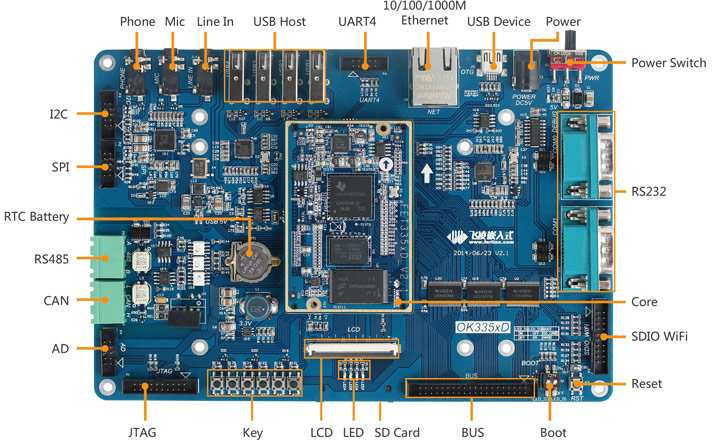Linaro Connect Hong Kong 2015 will take place on February 9 – 13,2015 in Hong Kong, and the organization has released the schedule for the five days events with keynotes, sessions, and demos. Each day will start with the keynote including speakers such as: George Grey, Linaro CEO, who will welcome attendees to Linaro Connect, and provide an update on the latest Linaro developments Jon Masters, Chief ARM Architect, Redhat, who will present Red Hat update and latest ARMv8-A demonstrations Dejan Milojicic, Senior Researcher & Manager, HP Labs Bob Monkman, Enterprise Segment Marketing Manager, ARM, will discuss about the impact of ARM in next generation cloud and communication network infrastructure Greg Kroah-Hartman, Linux Foundation Fellow, will introduce the Greybus Project (Linux for Project Ara modular phones) Warren Rehman, Android Partner Engineering Manager, Google The agenda also features sessions covering Android, ARMv8-A, Automation & Validation, Digital Home, Enterprise Servers, LAVA, Linux […]
Snappy Ubuntu Core is an IoT Linux Distribution for ARM and x86
Canonical has announced a version of Ubuntu specifically designed for IoT devices running Linux, with a low hardware requirements, and a new package manager called snappy, replacing apt-get for this version of Ubuntu, which provides simpler, faster, and more reliable updates, stronger security, and allows roll-backs in case something goes wrong. Easy firmware updates are something missing in most connected device, which means they are more vulnerable to potential hackers, but with snappy security updates should be able to make it regularly, so that if something like heartbleed occurs again, you know your router, home automation gateway, connected washing machine, or robot will be soon patched automatically. Let’s go through the hardware requirements first: Processor – 600 MHz processor (ARMv7 or greater, or x86) System Memory – 128 MB RAM or greater (The system itself uses 40 MB RAM) Storage – 4GB flash / storage for factory reset and system […]
Linux 3.18 Released
Linus Torvalds released Linux Kernel 3.18 last Sunday: It’s been a quiet week, and the patch from rc7 is tiny, so 3.18 is out. I’d love to say that we’ve figured out the problem that plagues 3.17 for a couple of people, but we haven’t. At the same time, there’s absolutely no point in having everybody else twiddling their thumbs when a couple of people are actively trying to bisect an older issue, so holding up the release just didn’t make sense. Especially since that would just have then held things up entirely over the holiday break. So the merge window for 3.19 is open, and DaveJ will hopefully get his bisection done (or at least narrow things down sufficiently that we have that “Ahaa” moment) over the next week. But in solidarity with Dave (and to make my life easier too 😉 let’s try to avoid introducing any _new_ […]
BeagleBoard-X15 Development Board To Feature TI Sitara AM5728 Dual Core Cortex A15 Processor
Before the BeagleBone and BeagleBone Black boards based on TI Sitara processor, there were BeagleBoard (-xM) boards powered by TI OMAP3 processors, and Beageboard.org and Texas Instruments are now working on their next open source hardware board with BeagleBoard-X15 powered by TI Sitara AM572 dual core Cortex A15 SoC. Since Beagleboard-X15 has not been formally announced, there’s no picture, and we don’t have the full details yet, but here are the expect technical specifications: SoC – Texas Instruments Sitara AM5728 dual core Cortex A15 processor @ 1.5 GHz, with PowerVR SGX544-MP2 3D GPU, Vivante GC320 2D GPU, 2x Cortex M4 cores, dual core C66x DSP, and IVA (Image and Video Accelerator) for 1080p video decode (H.264, VC-1, MPEG 1/2/4, AVS, etc..) System Memory – 2GB DDR3L with dual 32-bit buses Storage – 4GB eMMC, micro SD slot, and eSATA interface Video I/O – HDMI out up to 1080p60, LCD port, […]
TI Sitara based GOEMBED Systems-on-Module and Single Board Computers with BeagleBone Capes Support
GOEMBED is a startup funded by engineers previously working for Embest Shenzhen, based in Longhua district in Shenzhen, and specialized in embedded boards and modules. They currently have board and modules based on Freescale i.MX6 and Texas Instruments Sitara processors, but I’ll focus on the TI products in this post, including one of their single board computers that supports BeagleBone capes. CM3352 and CM3358 Systems-on-Module CM335x Series modules specifications: SoC – Texas Instruments Sitara Cortex A8 AM3352 @ 800 Mhz or AM3358 @ 1.0 GHz System Memory – 512 MB Micron DDR3 chip Storage – 2 to 4 GB eMMC depending on model PMU – TI TPS65910A3 Dimensions – 67.5 x 36.5 mm Temperature Range – Commercial: 0° to 70° C or Industrial: -40° to 85° C The modules are said to support Linux 3.x, Android 4.x, Ubuntu, Angstrom, Debian, WinCE 6.0/7.0, and uCOS operating systems. SBC335x Single Board Computers […]
Free Electrons Publishes Yocto & OpenEmbedded Training Materials
Free Electrons is a small (9 people) engineering company focusing on embedded Linux / Android, and open source software, which also happens to have ported several ARM SoC to the mainline kernel. From time to time, they also offer training sessions, and release course materials publicly. Their latest training is a 3-day course dealing with the Yocto Project and OpenEmbedded, using BeagbleBone Black development board for lab sessions, and all materials have been released under a Creative Commons license. The training consists in: Understanding the Yocto Project Using it to build a root filesystem and run it on your target Writing and extending recipes Creating layers Integrating your board in a BSP Creating custom images Application development with an Eclipse SDK Three files are released: yocto-slides.pdf – Yocto Project and OpenEmbedded Training presentation slides (245 pages) give an overview of various build systems, before getting more details about the Yocto […]
Forlinx OK335xD Industrial Single Board Computer Supports Android, Linux and WinCE
Forlinx, an embedded systems design and manufacturing company based in Hebei province in China, has announced OK335xD industrial (temperature) single board computer powered by Texas Instruments Sitara AM335X processor, and which appears to be a high-end version of their OK335xS-II SBC with more ports. Potential applications include communication devices, medical equipment, automotive computers, control panels, data acquisition devices, industrial control, industrial automation equipment, and more. OK335xD single board computer is composed of a CPU module (FET335xD), and a baseboard simply called “OK335xD Base Board”. Listed specifications for FET335xD computer-on-module: SoC – Texas Instruments Sitara AM3354 Cortex A8 processor @ 800MHz with PowerVR SGX530 GPU System Memory – 512MB DDR3 Storage – 256MB SLC NAND Flash Interfaces available via CoM connector: 1x USB 2.0 Host; 1x USB2.0 OTG Ethernet Dual Gigabit Ethernet 3x MMC 3x I2C, 2x SPI, 6x UART / IrDA Various GPIO pins 8x ADC 2x CAN LCD Interface […]
Linux 3.17 Released
Linus Torvalds announced the release of Linux Kernel 3.17 on Sunday: So the past week was fairly calm, and so I have no qualms about releasing 3.17 on the normal schedule (as opposed to the optimistic “maybe I can release it one week early” schedule that was not to be). However, I now have travel coming up – something I hoped to avoid when I was hoping for releasing early. Which means that while 3.17 is out, I’m not going to be merging stuff very actively next week, and the week after that is LinuxCon EU… What that means is that depending on how you want to see it, the 3.18 merge window will either be three weeks, or alternatively just have a rather slow start. I don’t mind getting pull requests starting now (in fact, I have a couple already pending in my inbox), but I likely won’t start processing […]









